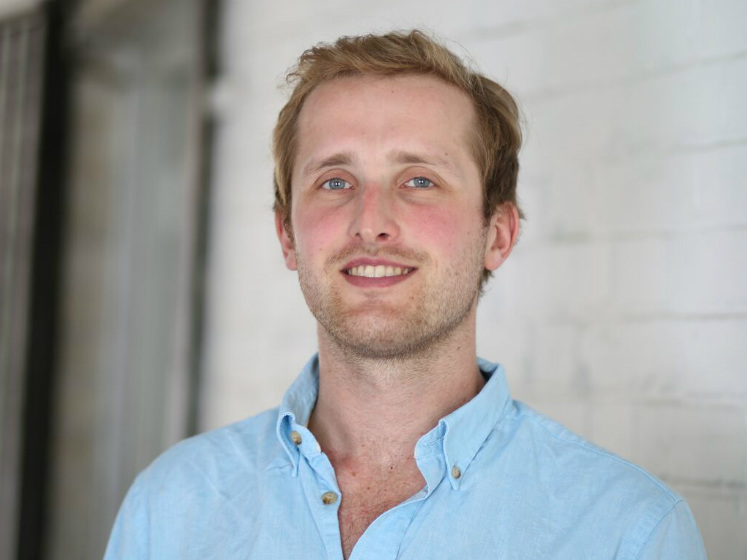 LSE alumnus Matthew Powell
LSE alumnus Matthew Powell
What inspired you to set up Breaking Barriers?
Breaking Barriers stemmed from a personal interest honed by my experience at LSE, which gave me the confidence to set up the organisation.
I’ve always been fascinated by migration and the forced displacement of people, a passion that led me to study for my master’s at LSE. During my time at the School, all the courses I chose went back to that central theme of migration and I became particularly interested in the topic of refugees in the UK and London specifically.
I was truly overcome by the statistics; previously, had you told me there were more than 120,000 refugees with the legal right to work in the UK I wouldn’t have believed you. To then learn that over 50 per cent of them weren’t employed was even more disturbing.
With LSE being such a policy-focused university, as an alumnus my next step after identifying a problem was finding the solution to overcome it. In the absence of a coherent, centralised project to tackle the issue, I saw a real opportunity for business to lead the way in facilitating the integration of refugees through employment.
In your experience, what are the main challenges facing newly-arrived refugees in London?
There are some obvious ones such as the lack of understanding of how the country works, language barriers, unfamiliarity with British culture, difficulties in navigating this huge, sprawling city or the lack of social networks. And refugees arriving in the UK face additional challenges compared to those arriving in other western countries: they are unable to work as asylum seekers and have to go through a lengthy asylum process.
The longest I’ve seen someone spend as an asylum seeker is 25 years, and the average for the people we support is five years. In this day and age, having such a gap in your CV is the single biggest factor preventing refugees from finding work. Their situation could be significantly better if the asylum seeker system were to replicate those of other countries.
What kind of support does your organisation offer?
We provide services across a range of areas including employment support, education, cultural orientation, English language skills, IT training and access to work placements and job opportunities. We build our programmes around refugees’ specific needs and are constantly evolving based on feedback we receive from them.
Our unique selling point is how we establish win-win relationships with London-based businesses to get them on board. We develop business cases to demonstrate how offering work placements and employing refugees can add value to their companies.
Breaking Barriers has moved away from the traditional approach of supporting refugees through philanthropy and charity to create a model that is more likely to be sustainable in the longer term.
What are Breaking Barriers’ biggest achievements to date?
One of our first success stories was Mayada, a human-rights lawyer from Sudan who sought and was granted refuge in the UK. We found her a work placement with the London offices of international law firm Mishcon de Reya and she was offered a permanent job after that. Two years on she is still working at the firm.
Finding someone who is very well educated and qualified for a job that enables them to pursue their previous professional career is particularly exciting. Our real focus is to help refugees into work that fully utilises their talent, skills, education and experience not only for their benefit, but also for the benefit of society as a whole.
What are your goals for the future?
Our immediate ambition is continuing to refine, develop and package up what we do, and expand our services in London. Our goal is to support 1,200 refugees per year by 2021 without compromising on the quality of the services we provide.
Beyond that, we aim to replicate our model in other major cities in which there are sizable refugee populations.
Find out more about Breaking Barriers
This interview was conducted in 2018